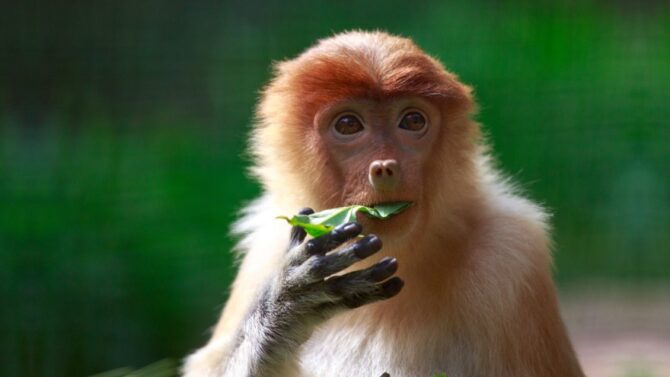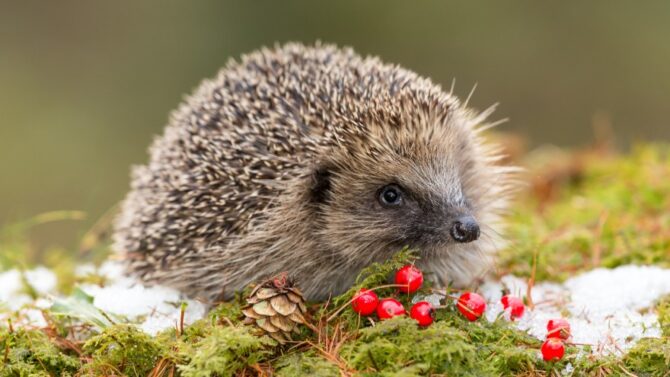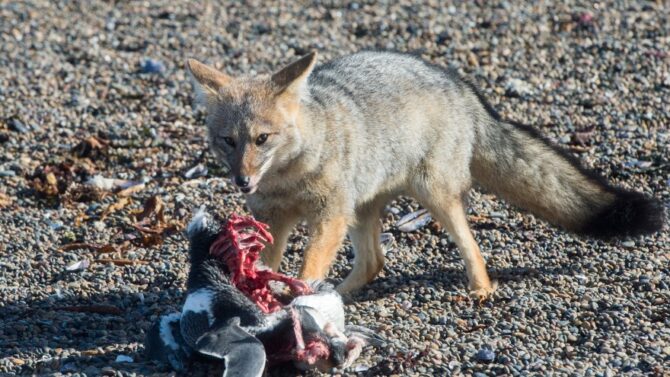Many people love owning pets, and some individuals have a knack for exotic animals.
However, in the United States, laws govern the ownership of exotic animals. These laws are often set in place for conservation and safety, both yours and that of the pet.
Some illegal pets to own in the United States include hedgehogs, sugar gliders, Bengals, Chausies, and even monkeys, among others.
Of course, we might want to have the freedom to own any exotic pet, but if you don’t want to pay a hefty fine, you’d need to comply.
So, before deciding to get an uncommon pet, you should understand the specific local laws and regulations in your area.
Illegal Pets – These Exotic Animals are Illegal to Own in the United States
1. Monkeys
(Simiiformes)

Circus movies present the monkey as the ultimate exotic pet, and it’s normal to contemplate rushing to the nearest pet store to purchase a monkey that you can teach tricks to and have a laugh at its mischievous antics.
However, many states are set to dash these dreams, and it’s not hard to see why.
This animal is illegal in 19 states, including California, Connecticut, Louisiana, and Maryland.
Monkeys can be a handful. Circus movies are right in portraying their bond with owners, but this is often in exclusion of other people who they then view as enemies. They might wound up attacking these “enemies.”
They can also be messy, and potty training isn’t as easy as you would with a domestic dog. Even more, they are carriers of diseases.
When you consider that they live up to 40 years, it is enough to rethink that dream, even if owning a monkey is legal in your state.
2. Zebra
(Hippotigris)
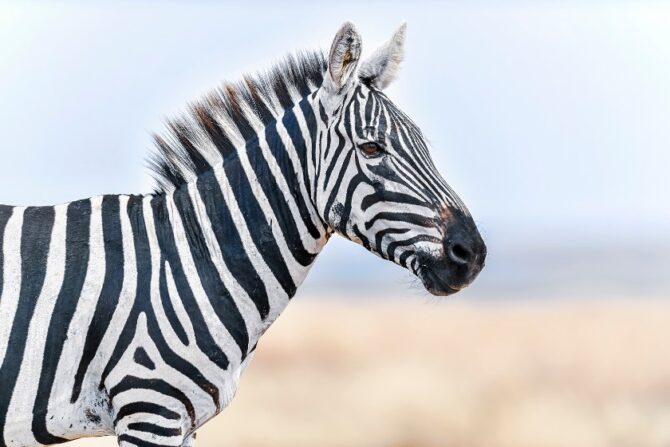
Zebras are similar to horses, and because the latter has been successfully domesticated, many have tried replicating the same with the zebra.
Those attempts have failed. However, some people still think it’s possible to keep a zebra in captivity.
For these optimistic folks, states like Nevada and New Hampshire have outright bans.
For starters, these animals are aggressive. Zebras may be herbivores, but they are wild and will kick if you come too close.
They also don’t like to be petted and don’t trust humans, so good luck trying to bond with this creature.
Even those born in captivity do not make good pets. Finally, they are good escape artists, unlike horses that can be trained to stay in a fence.
3. Hedgehogs
(Erinaceinae)
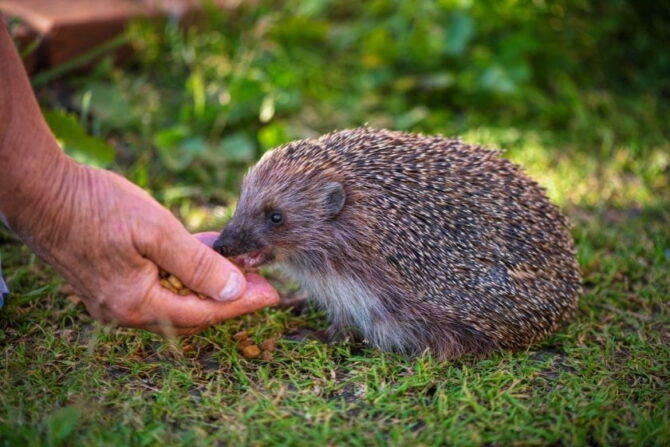
Hedgehogs have successfully been domesticated and are pets in some other places.
However, states like California, Georgia, Hawaii, and Pennsylvania have laws banning the ownership of these animals.
As cute as they may seem, pet parenting a hedgehog comes with its set of problems.
These creatures are nocturnal and noisy about it. If you love a good night’s sleep, you can kiss that goodbye once you own a hedgehog.
You also need experience in caring for your pet hedgehog especially when it is anxious. There’s the disease factor too.
4. Bengal Tiger
(Panthera tigris Tigris)
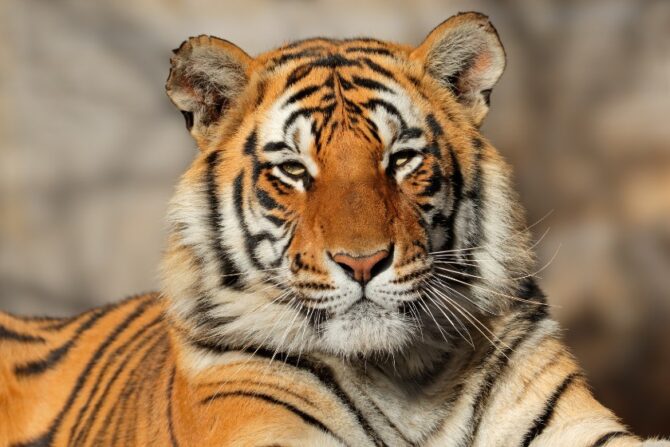
The Bengal tiger is classified as Endangered by the IUCN, and that alone gives enough reason for it being an illegal pet in several countries.
But more than that, owning a Bengal tiger comes with its challenges. This animal is banned in at least 19 states.
Some other places require strict procedures like proving that the Bengal tiger is separated from its wild cat ancestry by at least four generations.
The above requirement hints at the first problem pet parenting a Bengal tiger brings.
Domesticating them reduces the population in the wild, and with them being endangered, this is a problem.
Domesticated Bengals are also sometimes bred in less favorable environments, leading to health and behavioral issues.
5. Ferrets
(Mustellidae)

The ferret’s conservation status is “domesticated.” However, states like California and Hawaii don’t seem to have gotten the memo.
These animals are banned as pets in those territories, as well as in cities like Washington DC and New York City. Of course, there are valid reasons for this.
Ferrets are escape artists, and once they get lost in the wild, these domesticated creatures can affect the ecosystem.
There’s also the issue of biting. Ferrets bite a lot, especially when they feel threatened.
They can also bite when they need attention or can’t adapt to changes.
Their bites aren’t poisonous, but they contain germs that can affect a human. Finally, they are high maintenance.
6. Sugar Gliders
(Petaurus breviceps)
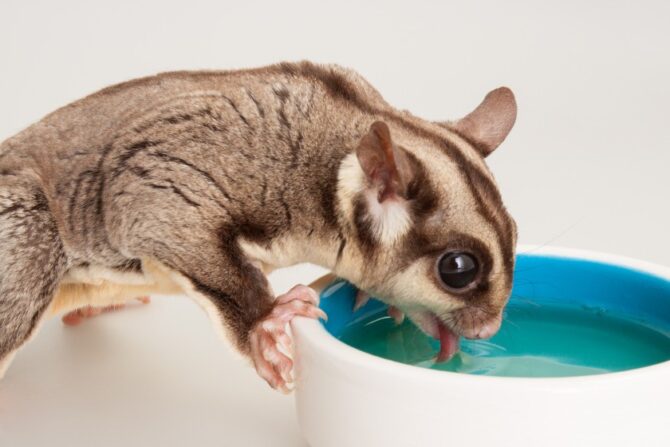
The sugar glider is an impressive-looking animal that many exotic lovers will want to have as a pet.
However, many states don’t buy into the fad. Places like Alaska, Hawaii, California, and Pennsylvania list this possum as illegal.
The attractiveness aside, sugar gliders are hard to own. Even if you live in a state where these animals are legal, think of the implications.
Sugar gliders are nocturnal and would need an environment dark enough to meet their needs.
It is also hard to find a veterinarian to care for the sugar glider; its diet is rare (nectar and specialized water).
7. Chausies
(Felis catus)
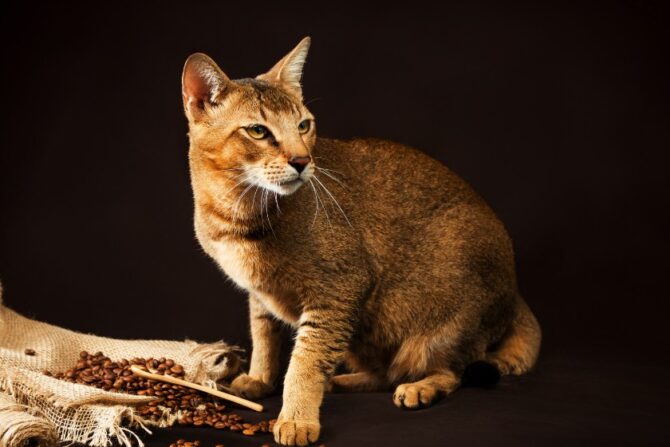
The Chausies are the result of crossbreeding between a jungle cat and a domestic cat, and successful breeding has made them very domestic.
However, they don’t come without significant challenges. Chausies are banned in at least 19 states.
The domestic nature of Chausies doesn’t completely clear off its wild side, so you’d have to be experienced to handle that.
These creatures are overly energetic, aggressive, and even antisocial.
Feeding a Chausie is also costly. It is easier to simply own a domestic cat.
8. Turtle
(Testudines)
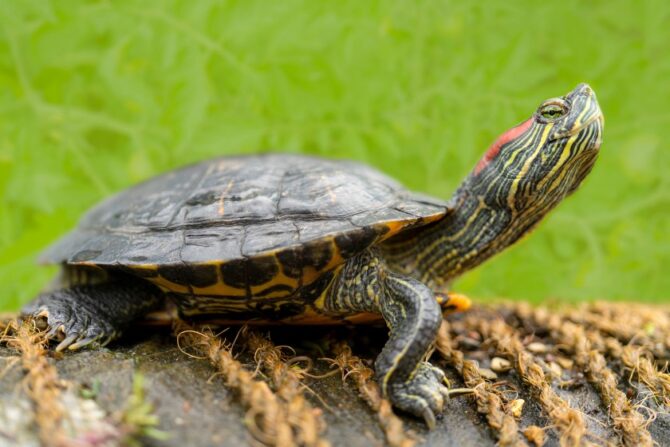
The turtle is a fairly common pet in many places, but in the United States, there are a lot of legal hurdles to owning one.
North Carolina and North Dakota have outright bans. In some places, the bans are slightly limited to those with shells lesser than 6 inches.
Other places check for salmonella disease, the biggest problem you’d encounter with this creature.1
Turtles are carriers of this dangerous disease often found on the shell. It can be transmitted with a touch, and the symptoms include diarrhea, stomach cramps, and fever.
Left untreated, it can lead to death. As the owner, you’re more at risk, especially when cleaning the cages.
9. Skunk
(Mephitidae)

Not everyone considers the skunk an ideal pet, but some do. If you’re in the latter, know that around 17 states consider this animal an illegal pet.
They include Florida, Alabama, Indiana, and Iowa. The bans are outright.
The major problem you’d have with the skunk is its smell, but even domesticated individuals with no scent glands have their challenges.
Even with training, skunks have wild instincts. They’d often go hunting other animals, which is a potential hazard.
Skunks are also poor choices for a family with kids because they startle easily.
Feeding and healthcare are costly for a skunk parent, and because there are no rabies vaccines for skunks, they can infect anyone around.
10. Lemur
(Lemuroidea)
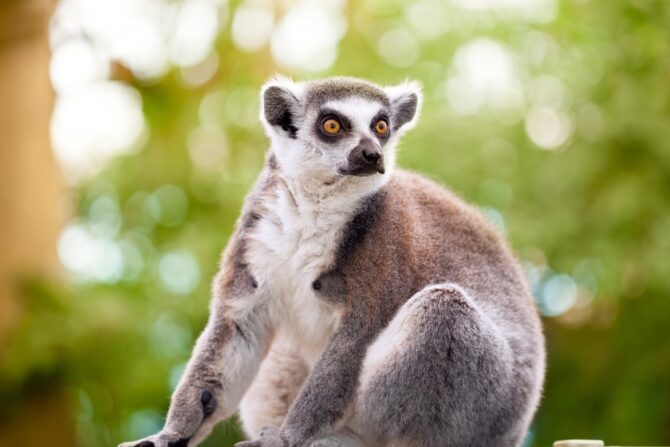
The lemur is endemic to Madagascar, but you can find it in captivity in the United States.
Owning it as a pet isn’t possible in all states, though. Places like Ohio, Nevada, North Carolina, and Florida consider the lemur illegal.
It is also highly regulated in a couple of other states.
The first challenge in owning a lemur is its social nature. You have to get more than one if you want healthy pets.
This leads us to the second issue, which is noise. Lemurs sing loudly, a possible nuisance both for you and your neighbors.
Also, note that females release offensive scents like skunks.
11. Quaker Parrots
(Myiopsitta monachus)
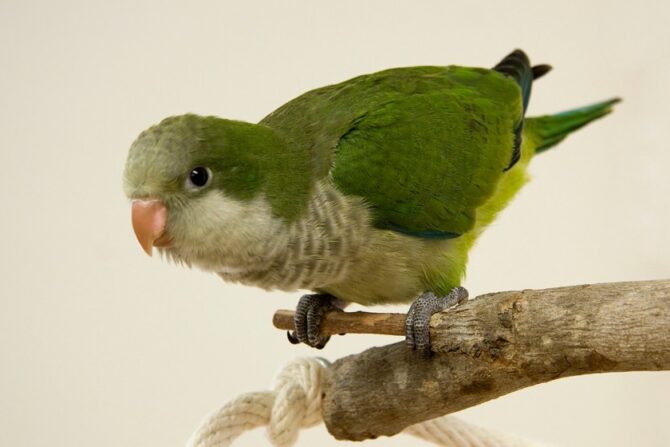
The Quaker parrot is also known as the monk parakeet, and because of its beauty, it fits the requirements of an exotic pet for a lot of people.
However, it is illegal in places like Connecticut, Colorado, Georgia, and Pennsylvania.
The major problem with Quaker parrots is their ability to form colonies and invade a territory they weren’t natives of.
It adapts easily to urban areas and has been found on different continents.
The concern is that they don’t destroy crops the way invasive species often do.
While there are some debates about whether these birds harm crops, the bans are safety measures.
12. Fennec foxes
(Vulpes Zerda)
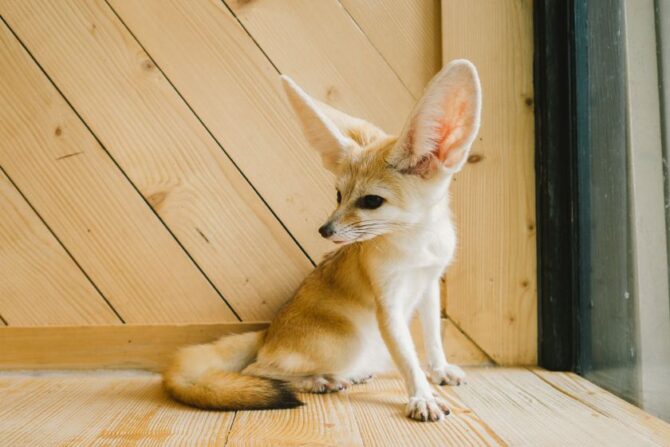
The fennec fox is the smallest fox species, and that makes it adorable enough for potential pet parents to consider it.
However, this won’t be you if you’re living in Minnesota, Washington, Missouri, and Nevada.
Though it is commercially sold as an exotic pet, these states view ownership of the fennec fox as illegal.
The major problem with the fennec fox is the rate of unlawful sales that leads to it vanishing in its native African countries.
It is also challenging to train a fennec fox, and it is not for the novice.
13. Gerbil (Meriones unguiculatus)
The gerbil goes by the full name Mongolian gerbil or the Mongolian jird and is fairly known as a small house pet.
That is, except in states like California and Hawaii, where the appearance of these small animals may do more harm than good.
Similar to the Quaker parrot, the gerbil forms colonies. This increases the chances of it being an invasive species if it escapes captivity.
The feared consequence is the destruction of crops and native animals.
14. African Clawed Frog
(Xenopus laevis)
The African clawed frog is an aquatic amphibian that can also be called the African clawed toad, the Xenopus, or the platanna.
They’ve been pets and research subjects since the 1990s, but do not plan on having one if you live in states like Hawaii, California, Kentucky, Louisiana, Utah, Virginia, and Washington.
The African clawed frog is illegal in these states primarily because it is the carrier of a deadly fungus that is harmful to other wildlife.
Even if you live in a state with no restrictions on this animal, be careful.
15. Jackrabbit
(Lepus californicus)
The jackrabbit also goes by the name the American desert hare, and it is quite common both in the United States and Mexico.
It looks fluffy and is an adorable choice, but in places like Kentucky, Arkansas, and Alabama, you cannot own this animal as a pet.
The problem isn’t so much with the jackrabbit but with people hunting wild rabbits to domesticate them.
This affects the population of rabbits in the wild and the ecosystem, hence the ban.
16. Pig
(Sus)
Pigs are well-loved pets and are even considered more intelligent than domestic dogs.2
As farm animals, they also have more purpose than being pets. It might be surprising for some, but these animals are illegal pets in New York City.
The major challenge with pigs is their aggressiveness, and they aren’t easily trained.
You also need to have the right environment for it, and not everyone can be the pet parent of a pig.
17. Venomous Reptiles
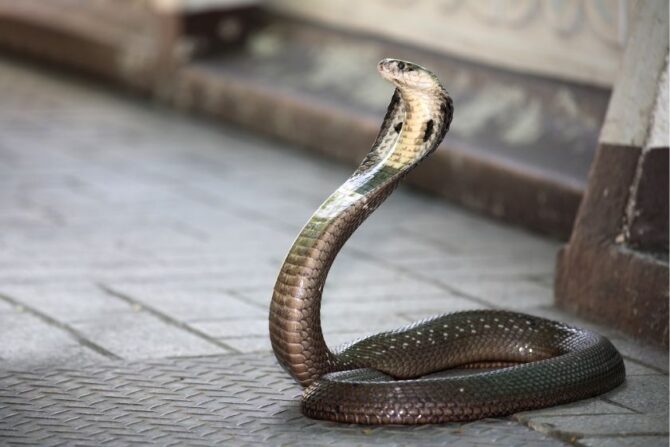
Who’d want to have a venomous reptile as a pet? Turns out many pet parents do.
However, even if you intend to rid the reptile of its venom, it is illegal in states like Washington, Iowa, and New Hampshire.
The first obvious reason is that venomous reptiles are dangerous. It can always escape its captivity and harm someone.
But even those without venom can bite, be aggressive, and hardly form bonds with their owners other than for food.
18. Bearded Dragon
(Pogona)
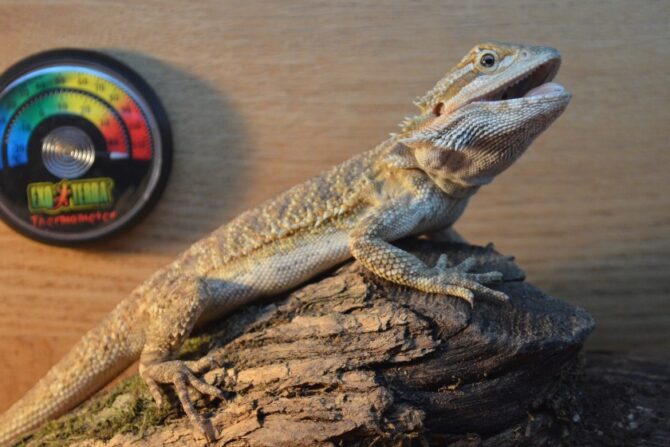
The bearded dragon is a genus of six lizard species that appeal to reptile lovers.
Many states have no problem with the bearded dragon, but there’s a place in particular where it is unwelcome. This place is Hawaii.
The bearded dragon has no natural predator on the island, which means if it gets introduced there, the population might get out of control.
It might also damage crops and disrupt the lives of other animals on the island.
19. Chinese Hamster
(Cricetulus griseus/Cricetulus barabensis griseus)
The Chinese hamster is a native of China and Mongolia but has since become a popular exotic pet in the United States.
It isn’t legal in all parts of the United States, however. The Chinese hamster is banned in California and Hawaii.
Chinese hamsters are known to form colonies, and in the states of Hawaii and California, they can be detrimental to crops and native animals. They make good pets, though.
20. Bats
(Chiroptera)
This might be surprising to some and common knowledge to others, but people often consider bats as pets.
However, while it is possible to own one, it isn’t always advisable. One reason is the legal implication.
The bat is illegal in many states, and in all honesty, they are not the best option for pets.
For one, it is hard to feed bats. These animals feed up to 500 mosquitoes at once, making it difficult to cover their diet in captivity.
They can’t be domesticated, too, and would always try to escape if possible. Bats also carry rabies and can transmit it with a bite.
Review of Illegal Exotic Pets
| # Rank | Animal | Banned States |
|---|---|---|
| 1. | Monkey | Connecticut, Colorado, California, Georgia, Kentucky, Maine, Louisiana, Maryland, Massachusetts, Minnesota, New Jersey, New Mexico, New York, Pennsylvania, Rhode Island, Vermont Wyoming, Utah |
| 2. | Zebra | Nevada, New Hampshire |
| 3. | Hedgehog | California, Hawaii, Georgia, Washington DC, Pennsylvania, NYC |
| 4. | Bengal Tiger | At least 19 states |
| 5. | Ferrets | California, NYC, Hawaii, Washington DC |
| 6. | Sugar glider | Connecticut, Alaska, California, Hawaii, NYC |
| 7. | Chausies | At least 19 states |
| 8. | Turtle | North Dakota, North Carolina |
| 9. | Skunk | Alabama, Indiana, Florida, Iowa, Michigan, Massachusetts |
| 10. | Lemur | Ohio, Nevada, North Carolina, Florida |
| 11. | Quaker Parrot | Wisconsin, Kentucky, Pennsylvania, Hawaii, Georgia, Rhode Island |
| 12. | Fennec Fox | Missouri, Nevada, Minnesota, Washington |
| 13. | Gerbil | Hawaii, California |
| 14. | African Clawed Frog | California, Kentucky, Louisiana, New Jersey, Oregon, Washington, Nevada, Hawaii, North Carolina |
| 15. | Jack Rabbit | Kentucky, Kansas, Alabama |
| 16. | Pig | New York City |
| 17. | Venomous reptiles | Washington, Iowa, New Hampshire |
| 18. | Bearded Dragon | Hawaii |
| 19. | Chinese Hamster | California, Hawaii |
| 20. | Bats | Washington state and many others |
In Summary…
Getting an exotic pet is a good endeavor, but to avoid breaking any state laws and having to face the penalty, ensure that the animal you have in mind isn’t illegal in your state.
There are many reasons your potential exotic animal may be a danger to you, itself, and the environment at large.
References & Notes
Facts Sources:
- Salmonella. Centers for Disease Control and Prevention (CDC).
- Pigs are gentle creatures with surprising intelligence. The Humane Society of the United States.
